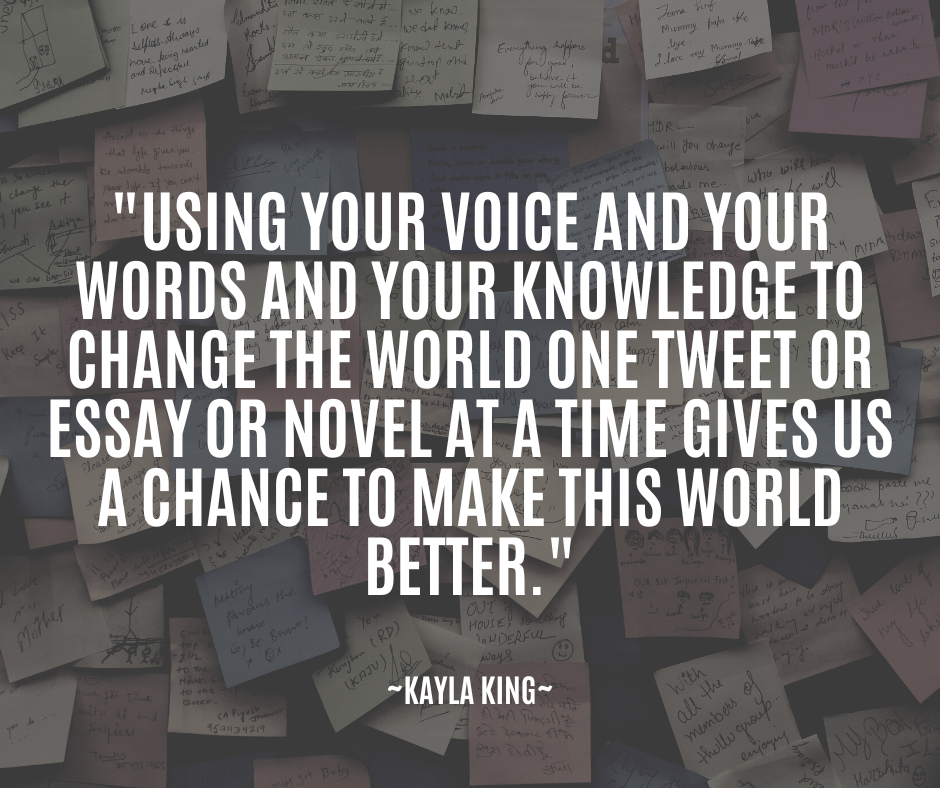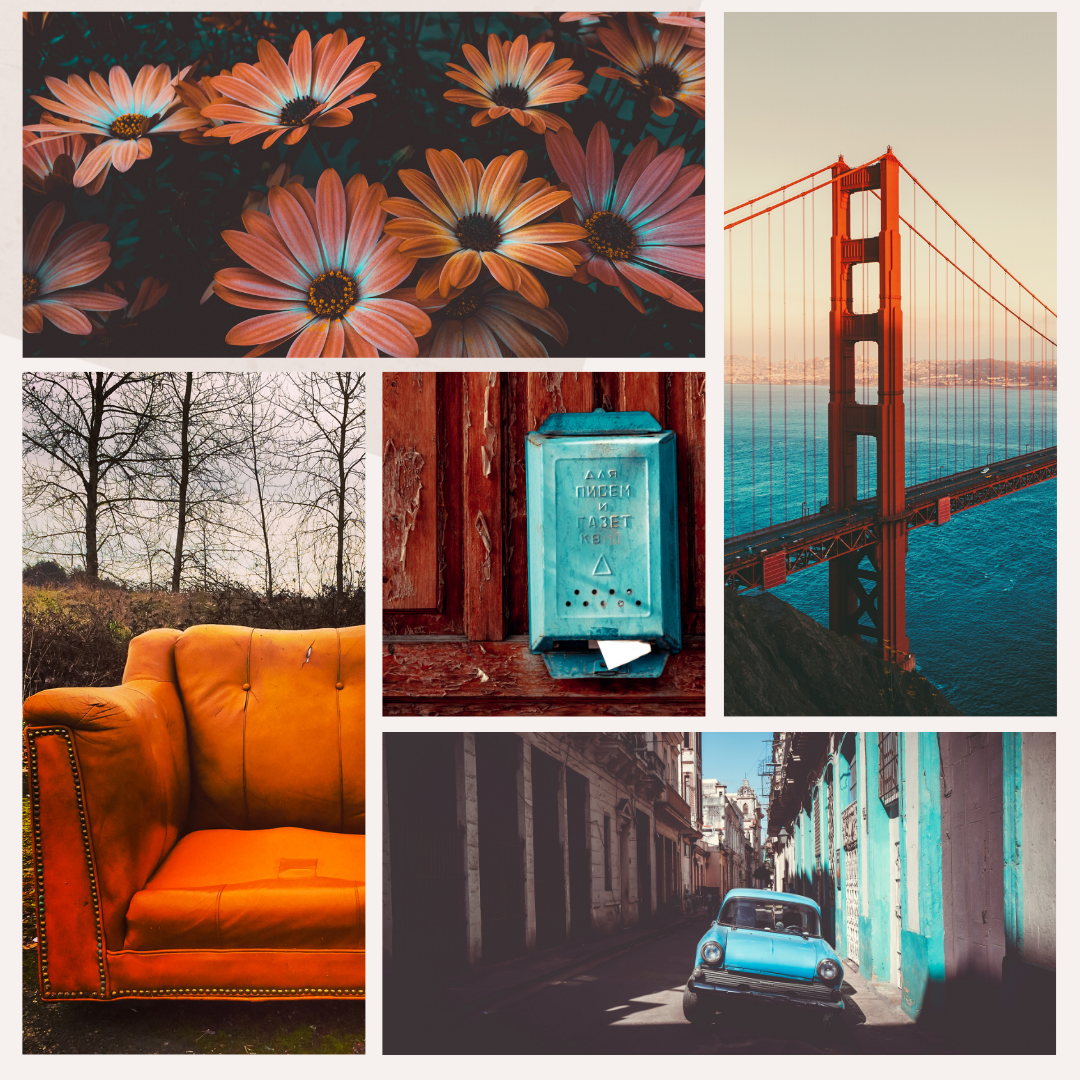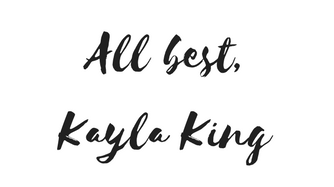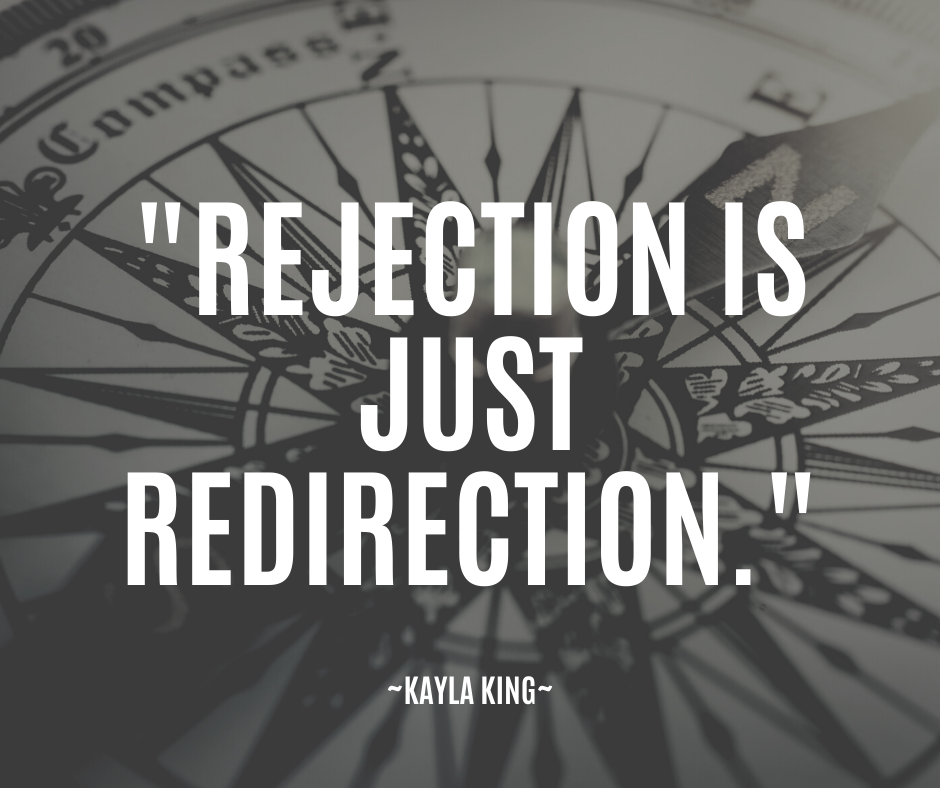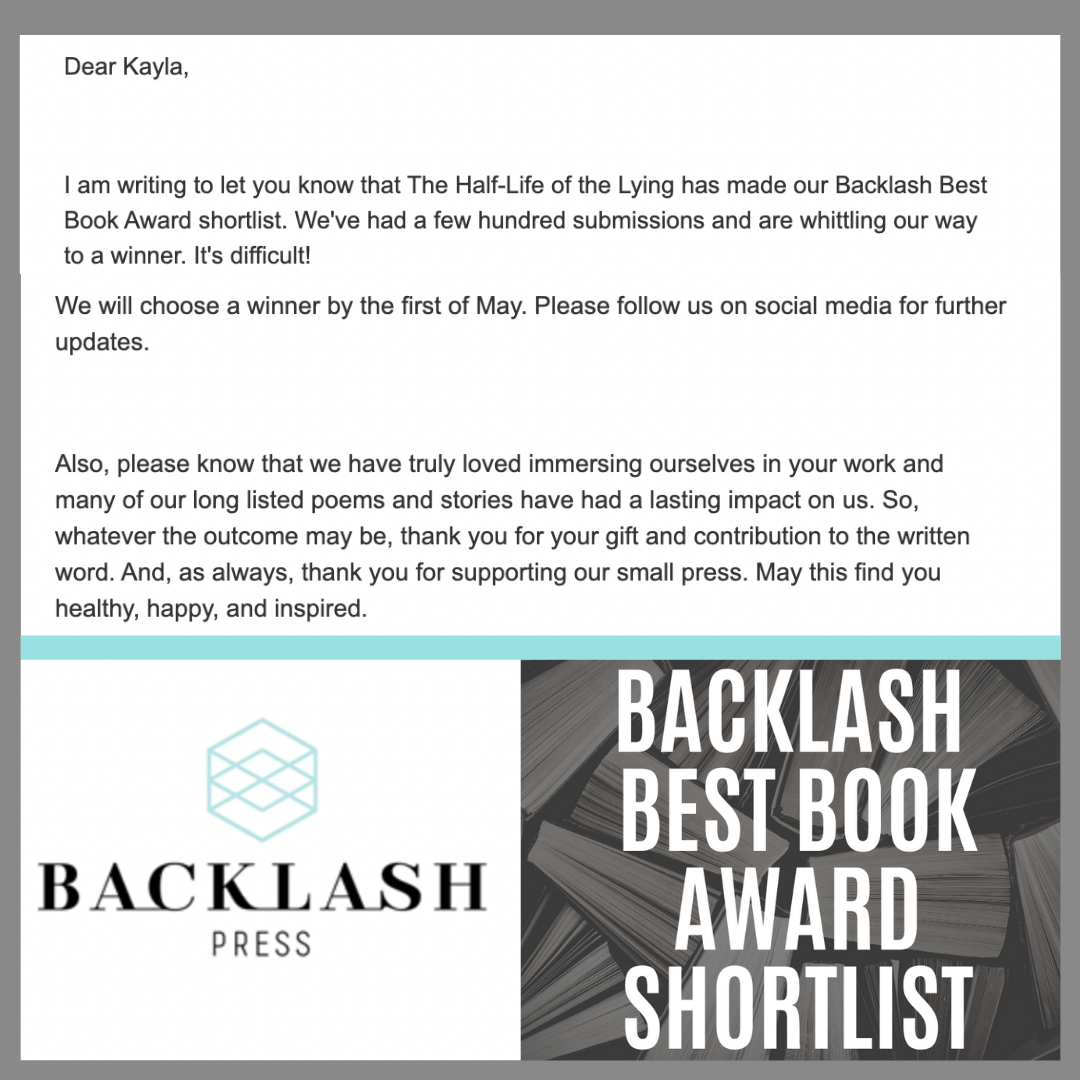It’s no surprise that I returned to this safe space with a fervor, only after sharing my thoughts in a tweet.
In case you’ve somehow missed it, or are not on Twitter, my feed is full of those terrified about the downfall of a once comforting site. Namely, for writers. I know this is true for myself.
I currently have Instagram, Tik Tok, Pinterest, Goodreads, Youtube, and Facebook. However, Twitter has always been my preferred social media platform when it comes to an uplifting community.
Many would think Facebook would be able to do just that. Especially since my personal account has strict privacy settings. The thing about having a carefully curated group of “friends” on Facebook is that it mostly relies on people I already know. I will not accept friend requests from people I’ve never met. This is how I feel safe. I’ve seen more hacked Facebook accounts and that’s just on the personal end. When you get into the nitty gritty of trying to run a professional platform on Facebook, you encounter ever changing pages and a distinct lack of customer support.
But what’s most important: I have seen and experienced more kindness from strangers on Twitter than most of the “friends” on my Facebook feed. And maybe you’re saying, get new Facebook friends. It’s tough when you’re only keeping Facebook alive for your family members and high school teachers to maybe find the link to a poem you published. I guess that’s what it comes down to for me.
But interacting with strangers and making new writerly friends has only ever happened for me on Twitter.
Sure Instagram is lovely to look at most days. I follow a variety of authors and other bookstagram accounts and even one page where pies are designed to resemble book covers. But I don’t feel like I can personally interact with the people I follow aside from those I already know. And I don’t think this is due to user error. It’s simply the way Instagram is meant to function:
Heart the aesthetically pleasing photo and move on with your day.
Don’t try to include an outside link in your caption to let anyone actually go to the thing you’re mentioning.
Create a reel.
Share to your story.
Etc.
It’s all pretty basic, but really only translates well for those who have made Instagram a full time career.
For those of us writers working tirelessly on a WIP, to those of us editors building a platform for a small publication, Instagram works well enough, but it doesn’t give us everything we need.
Maybe it’s because we deal in words. Twitter gives us the space to only share words if we want. Feel free to tack on a photo or include a link. Stick to your character limit, breathe some brevity into that thought, or make it a thread. But at the end of the day, you might just find your people.
I know I’ve been able to do just that over the last eight years.
My journey on Twitter started out by talking about books and writing. Not much has changed, though now I do speak up more about the causes that matter most to me.
During those early days on Twitter, an online literary magazine, One For One Thousand, replied to my tweet, suggesting I submit to them. They published flash fiction of 1,000 words inspired by photos. After all, a picture says a thousand words. I wrote a new story and submitted. They accepted. This story, “Three of Swords,” was my first fiction publication.
Following publication, I was invited to submit again. And I did. “Hanged Man” was published not long after. Again, I was invited to submit more. By my third publication, “Exulansis,” I was invited to become a contributing editor with One For One Thousand. It was a wonderful experience before we all parted ways.
As an editor and social media manager for One For One Thousand, I started to find other magazines through Twitter. I’ve always been and am still on Submittable and I use their discovery tabs. But there is something much more akin to kismet about finding that perfect call for submissions.
Nearly every publication credit I have, I owe to the literary community on Twitter.
Once I received a truly heinous rejection. Instead of subtweeting, I wrote them into a poem, and did the exact thing they rejected me for in the poem. A different literary magazine, Another New Calligraphy tweeted and asked if I would ever like to submit. I did so, and was published in their debut issue of Impossible Task. That poem, “Something You Called Sleight of Hand,” is still one of my favorite poems published.
And when Taco Bell Quarterly tweeted that they were asking for the worst rejection letters in exchange for a Taco Bell gift card, I happily sent that monstrosity. I had confirmation that the rejection letter was awful, and got a free taco out of it.
In a different scenario, a poet was offering to make playlists for people by liking the tweet. I did. This is how I met Preston Smith. He’s still one of my favorite poets and friends I’ve made on Twitter.
When the time came and I started a blog series called “Pages Penned in Pandemic,” Preston was one of the first writers I reached out to for an interview. Then when this transformed from an interview series on my blog to a collective featuring pieces written during 2020, Preston submitted some poetry. He now has quite a few pieces in that published book, though my favorite will always be “To the Boy in California.”
During the course of those submissions, I created a new Twitter profile, and I reached out to writers to invite them to submit. Others found us through retweets or by writers happily tweeting their acceptances. By the end, we received 300+ international submissions, and collected Pages Penned in Pandemic into a print book that still makes me so proud every time I read back through.
Just before we opened submissions, I saw a tweet from Benjamin Brindise asking if anyone living in Buffalo wanted homemade soup. I live in Buffalo. I love soup. He made me homemade minestrone to celebrate submissions opening for my small publication. He is also the Flash Fiction editor for Variety Pack. Through Twitter, I found their call for submissions, sent a few poems, and was featured in their Mini Pack where one author from each genre gets published. My poem, “This Will Only Hurt Until It’s Time For Dinner Again,” is another favorite among those I’ve had published.
Are you starting to see a trend? So many connections and strangers eventually became friends and peers.
When my second collective, The Elpis Pages, opened for submissions, I created another Twitter. Through this, some of the authors published in my first collective retweeted and shared the call. I received staggering amounts of submissions, and again, have a book that I am so proud to keep on my shelf.
This account is still growing, as I am working on my third collective, The Elpis Letters. I love when writers tweet their acceptances. It allows me to feel closer to their celebrations, no matter where we may be in the world.
Throughout every experience, I have had the chance to network with other editors and publications. We take care of one another. On no other social media platform have I seen warnings about violent or hateful content coming from writers, about the kind of harassment that is worrisome, and the guidance on how to handle such persons in your submission inbox. I’ve always called it the “whisper network” on Twitter, but it’s helped me navigate tough situations where editors or authors may have otherwise been harmed or taken advantage of during a routine call for submissions.
For those of us getting ready to query, I think about all the books that have been published because of pitch contests on Twitter. For those who may not be familiar with the process, you tweet the pitch for your book. If an agent likes it during the hours of the contest, you are free to query them, and mention they liked your tweet. This gets you out of the main slush pile, though it may not guarantee representation or a book deal. Similarly, editors may like your tweet. This is something you can share with an agent before entering submissions. It’s all possible because of the vast reach and engagement on Twitter.
I have found critique partners on Twitter. I have found solace mourning the loss of a character on a show because of this site. And when I have new work published, I have actual human readers engaging and reading the work because of links or snippets shared by myself and the literary magazine on Twitter.
Without this site, I am not sure what will happen to the literary community. Of course, it survived the dark ages of Writer’s Digest. But from my understanding, that world was much more about prestige of publication than giving people equal access and platforms to share their words.
If history has taught us anything, it’s that speaking up is important. Using your voice and your words and your knowledge to change the world one Tweet or essay or novel at a time gives us a chance to make this world better. It’s been a bit of a dumpster fire for too long with only brief glimmers of hope.
Twitter, more than anything, has given people a free platform with equal access to share and receive information. There is value in such a thing. Take that away? I’m sure you know about the Ukraine atrocities, how Russia has attempted to keep their citizens docile and ignorant to the horrors being committed by taking away equal access to information. Look at every historical trauma and you will see what a lack of knowledge has done.
And I’m not talking about the fake news that runs rampant on Facebook. Before Twitter changed hands, there were alerts that mentioned whether a news article should be considered with caution. It is my understanding that this is going away, along with an unprecedented increase in the use of the “N” word since Musk loosened certain strictures. From where I exist, that seems like “freedom of hate speech” not the “freedom of speech” we should be fighting for in the United States and countries beyond our borders.
People are still being silenced. Books are still being banned. Where can we go to feel safe? To stay up to date with the most important news? You can think what you want about traditional news sources, but I have always preferred to get my news from Twitter. Get in and get out. Life is filled with too much darkness to tune into the nightly news and be bombarded with so much carnage.
Alas, I’m not sure there is any answer to the possible decimation of Twitter. There is only sadness and fear for those of us who rely on this site to stay connected and share our words with the world.
Many thanks for the literary magazines and authors and dreamers who’ve made Twitter such an inviting space for the last 8 years. I hope we’re not going anywhere. I hope I get the chance to tweet my announcement of an agent when I get one, to share my book news for all my Twitter friends, to stay engaged and in contact with the community I have worked so hard to build in this time.

